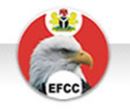By Dan Byrne for AMLi
KEY COMMITMENTS to the rule of law and reshaping business relationships are needed if the EU is to get to where it needs to be in the fight against corruption, a French legal think tank has warned.
In a report released this week, Les Club de Juristes – an association of lawyers, magistrates, professors and business reps, have called for key reforms to re-emphasise the importance of tackling money laundering, bribery and other financial crimes.
Under their proposals, the report calls for the following actions “without delay”
1. Ensuring respect for the rule of law and democracy
2. Levelling the playing field between all European businesses and ensuring no conflicts of jurisdiction occur within the block.
3. Protecting European business interest worldwide – in particular, rejigging the EU’s relationship with the US
4. Promoting EU anti-corruption standards worldwide
“The fight against corruption should occupy a central place on the agenda of the new European Commission,” the report said.
It drew attention to a perceived double-standard within EU policies – whereby potential member states would be subject to strict anti-corruption requirements that, at the same time, are not given priority amongst states which have already joined.
“The fight against corruption is a condition of citizens’ confidence in the proper functioning of institutions and the market,” the report said. “It is thus a fundamental component of the rule of law and democracy, threatened by the rise of populism.”
The call for more harmonisation of rules and less internal divisions mirrors opinions amongst MEPs in Brussels, many of whom see an EU-centric model to corruption as a better option compared to member-state-led alternatives.
At a European Commission hearing on money laundering in October, Executive Vice President Valdis Dombrovskis said that states must work together to ensure money laundering rules are enforced consistently.
At the time, he spoke with the benefit of six months’ worth of feedback from stakeholders all over Europe.
In the report, the lack of consistency across Europe was singled out as a key challenge.
“Only some member states currently impose legal obligations on larger enterprises relating to the prevention and detection of corruption,” it said.
This, combined with the disjointed approach of legal prosecutions for crimes that occur across borders has led the report to the conclude that some cases are subject to an unnecessary amount of outside influence.
“The lack of a robust EU anti-corruption policy to date has helped to promote the extraterritorial enforcement of foreign legislation with regard to European businesses,” the report said, zeroing in on the American Foreign Corrupt Practices Act.
“Over the last decade, the largest penalties imposed on the basis of this law have generally been imposed on European businesses.”
Share this on:
Follow us on:











